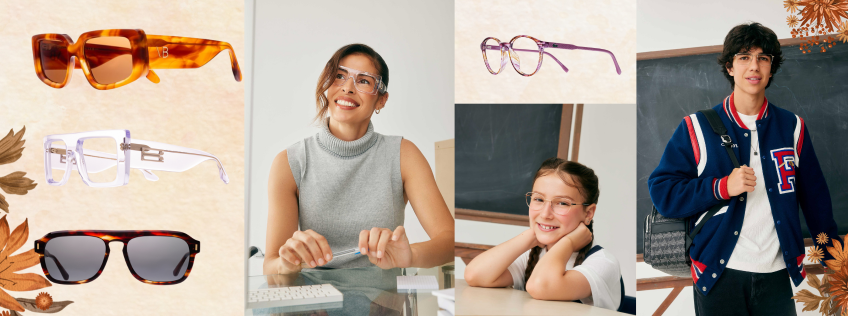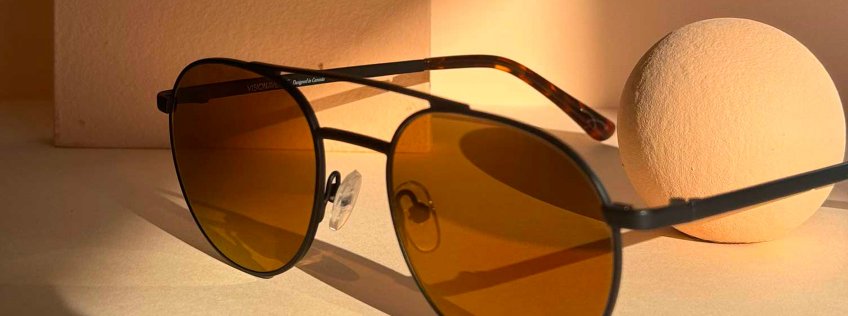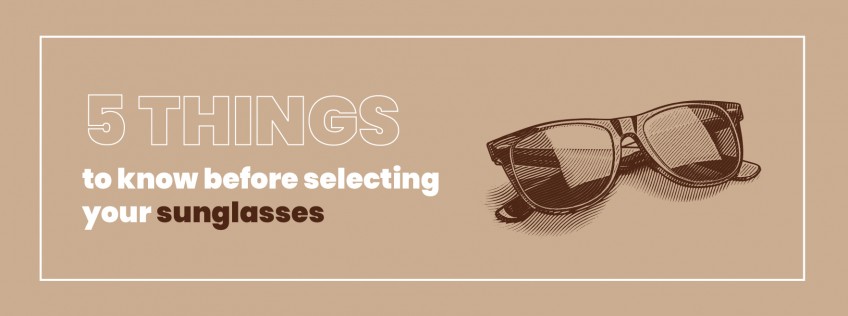
5 things to know before selecting your sunglasses
by Optoplus / August 2022
Sunglasses are not only fabulous fashion accessories; they're also your greatest allies against UV rays. The ideal sunglasses should protect your eyes from ultraviolet rays during a day at the beach, a car ride, or a hike. Here's a smart shopping guide to help you find the perfect pair!
 Protect yourself…but from what?
Protect yourself…but from what?
Fancy glasses with dark lenses don't necessarily protect your eyes against UVA and UVB rays. In fact, dark lenses dilate the pupils, and if these same lenses aren't offering adequate protection, your eyes are more vulnerable to the sun's harmful rays.
Without the proper protection, the sun can permanently damage your eyes. Indeed, the sun is the source of many visual ailments, such as corneal burns (ophthalmia), frequent conjunctivitis, early cataracts, or even ocular edema. When it comes to eye health, nothing beats prevention!
 The right sunglasses for the right scenario
The right sunglasses for the right scenario
Always opt for glasses adapted to the weather conditions and nature of your outdoor activities. According to Health Canada, there are three categories of sun protection:
- Cosmetic sunglasses have slightly tinted lenses and are only recommended in low sunlight environments. Visible light and UVA rays are blocked by up to 60%. For UVB, it's between 87.5% and 95%.
- All-purpose sunglasses are recommended when the sun makes you squint. These are the best choice for behind the wheel. These glasses block between 60% and 92% of visible light and UVA and between 95% and 99% of UVB.
- Special purpose sunglasses are ideal for mountain treks, sailing, and beach days but are too dark for driving. These glasses block up to 97% of visible light, up to 98.5% of UVA and at least 99% of UVB.
Manufacturers only display this information voluntarily, but good quality models will usually detail the features, performance, and care instructions. Always keep an eye out for them.
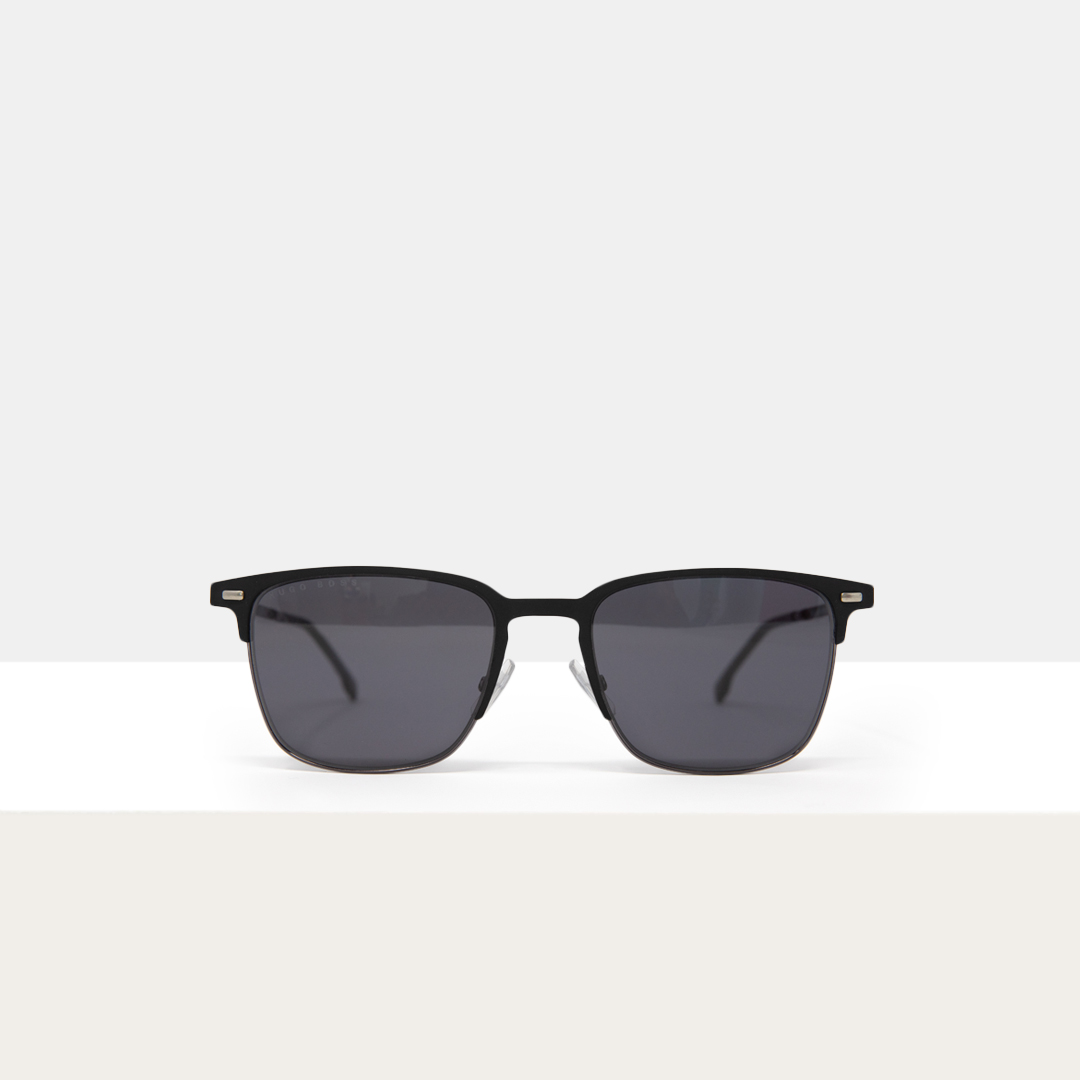
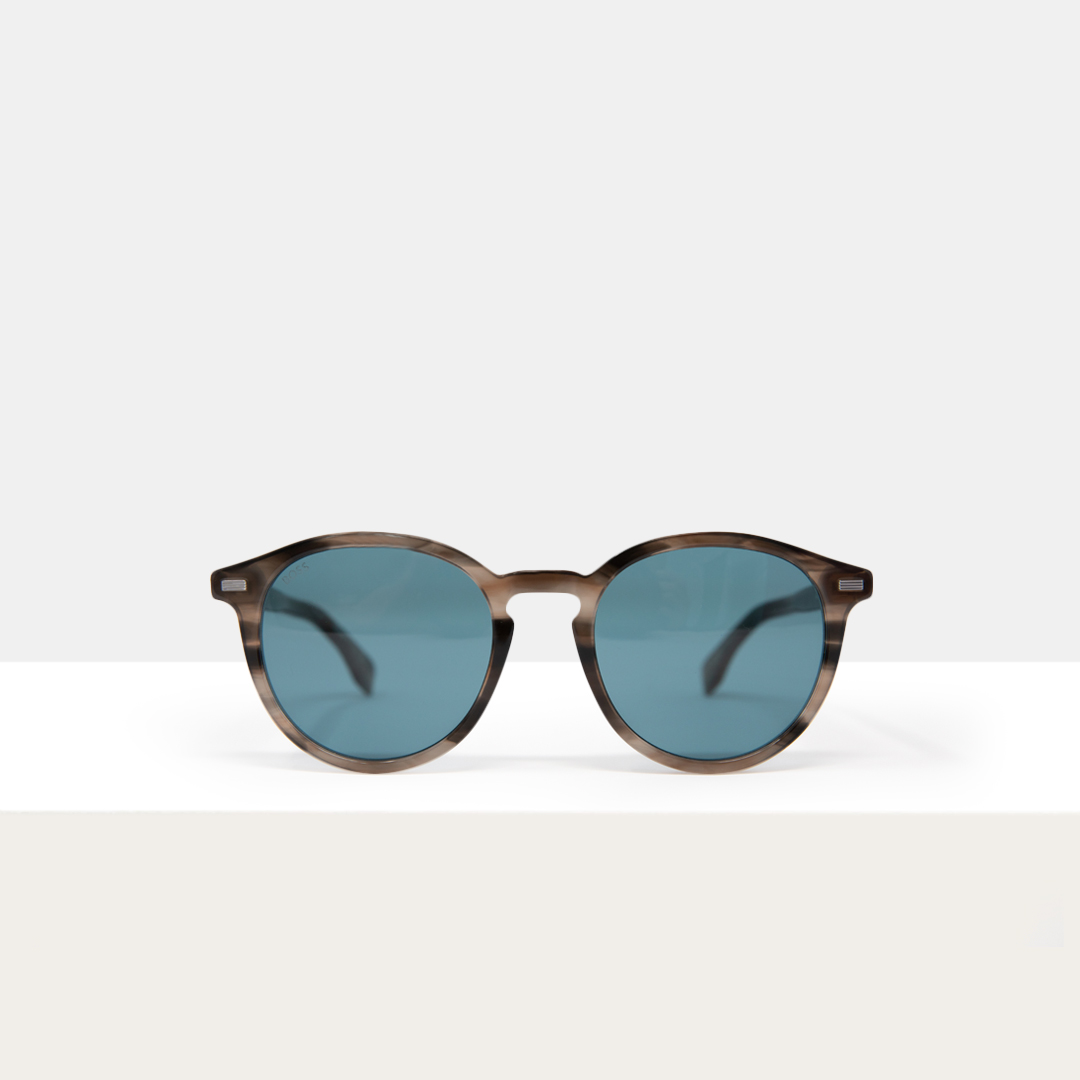
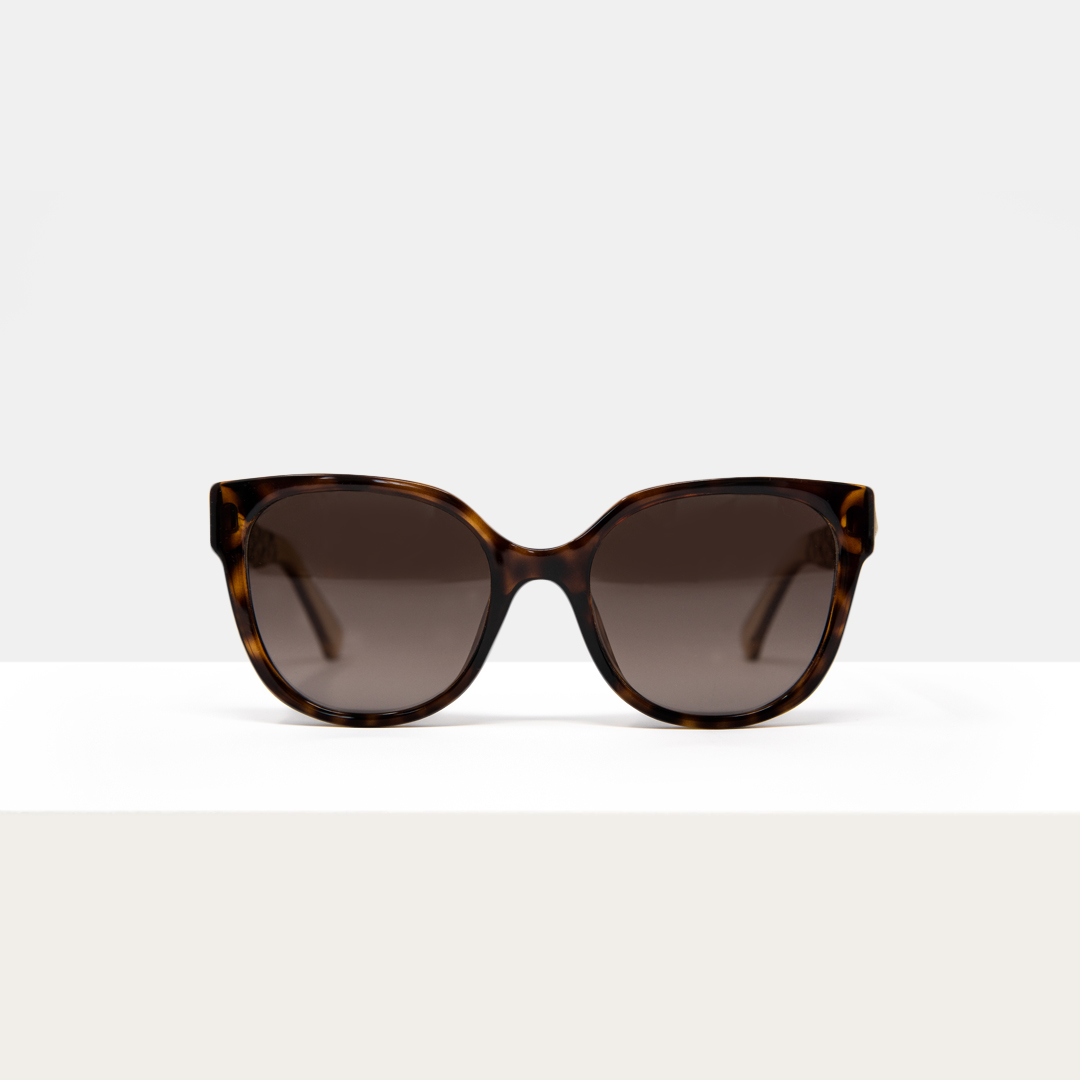
 In tip-top shape
In tip-top shape
Far from being just a matter of the latest trends, the shape of your sunglasses plays a big part in determining protection. Frames should wrap around your eyelids and eyes to limit the passage of harmful rays.
For situations that require good peripheral vision, such as driving, opt for generously sized lenses and a thinner frame that won't obstruct your field of vision. During activities when sunlight and glare are intense (i.e., mountaineering, skiing, or water sports), favour curved frames that envelop the face and eyes. These frames help block infrared rays present at high altitudes and harmful blue light from the water, snow, or other reflective surfaces.
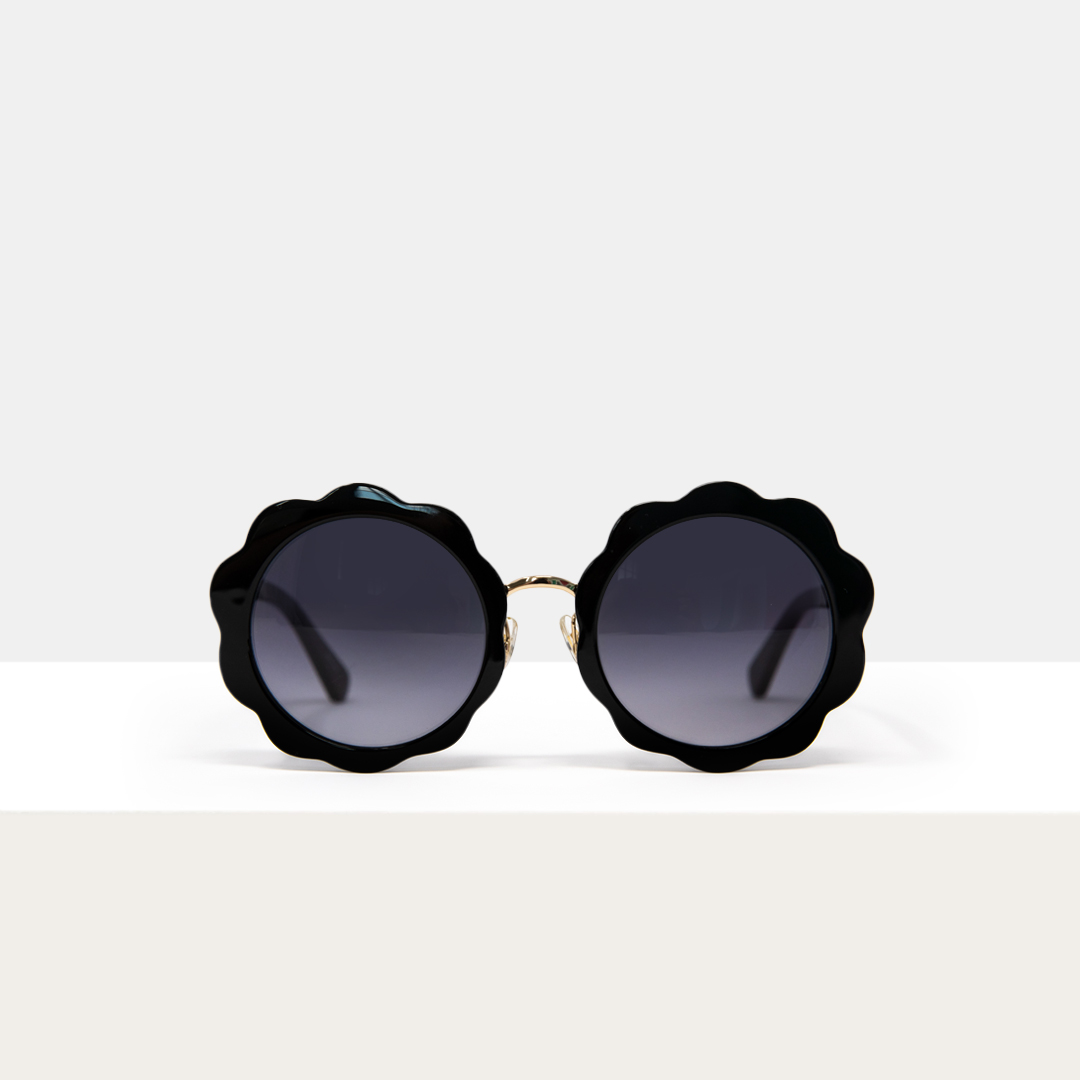
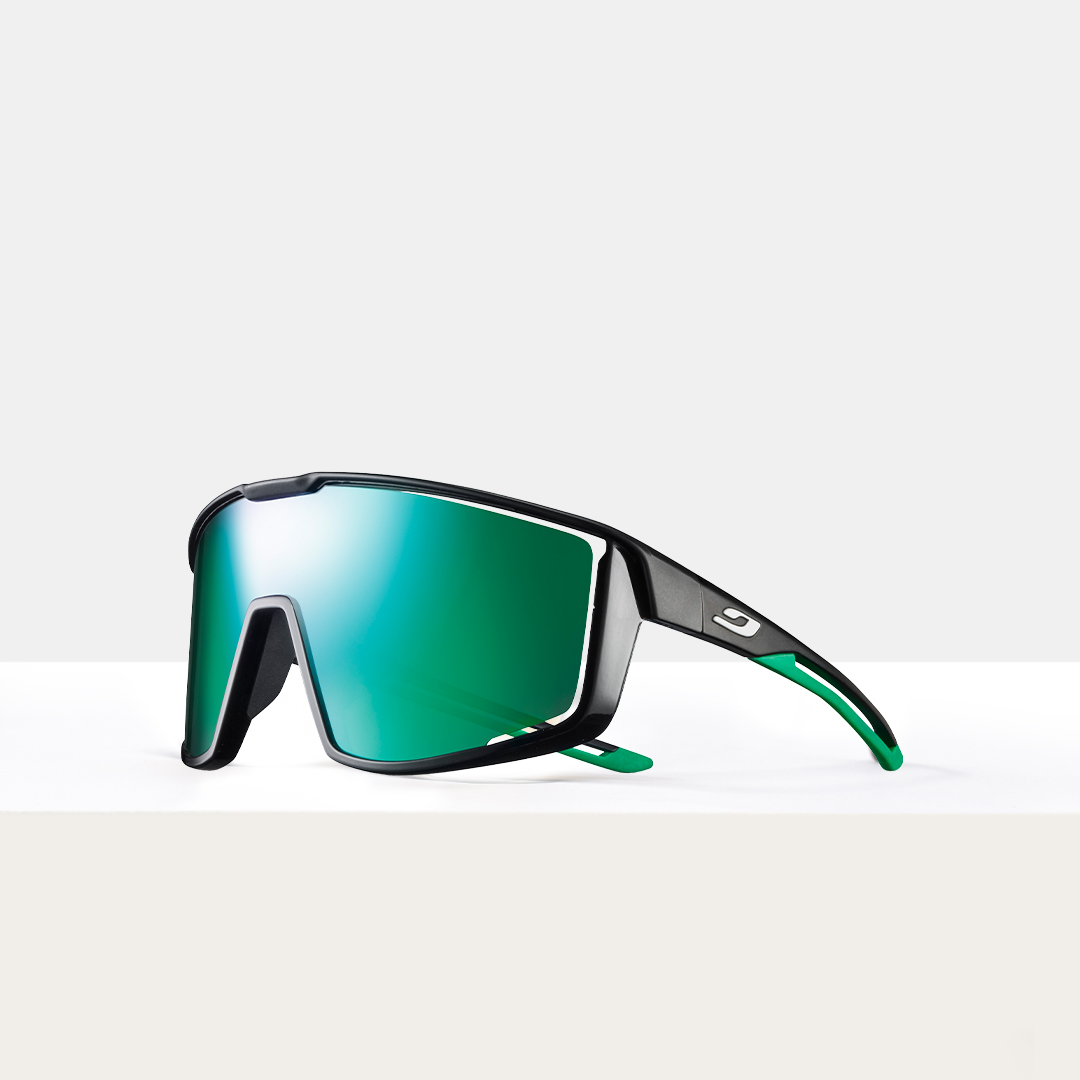
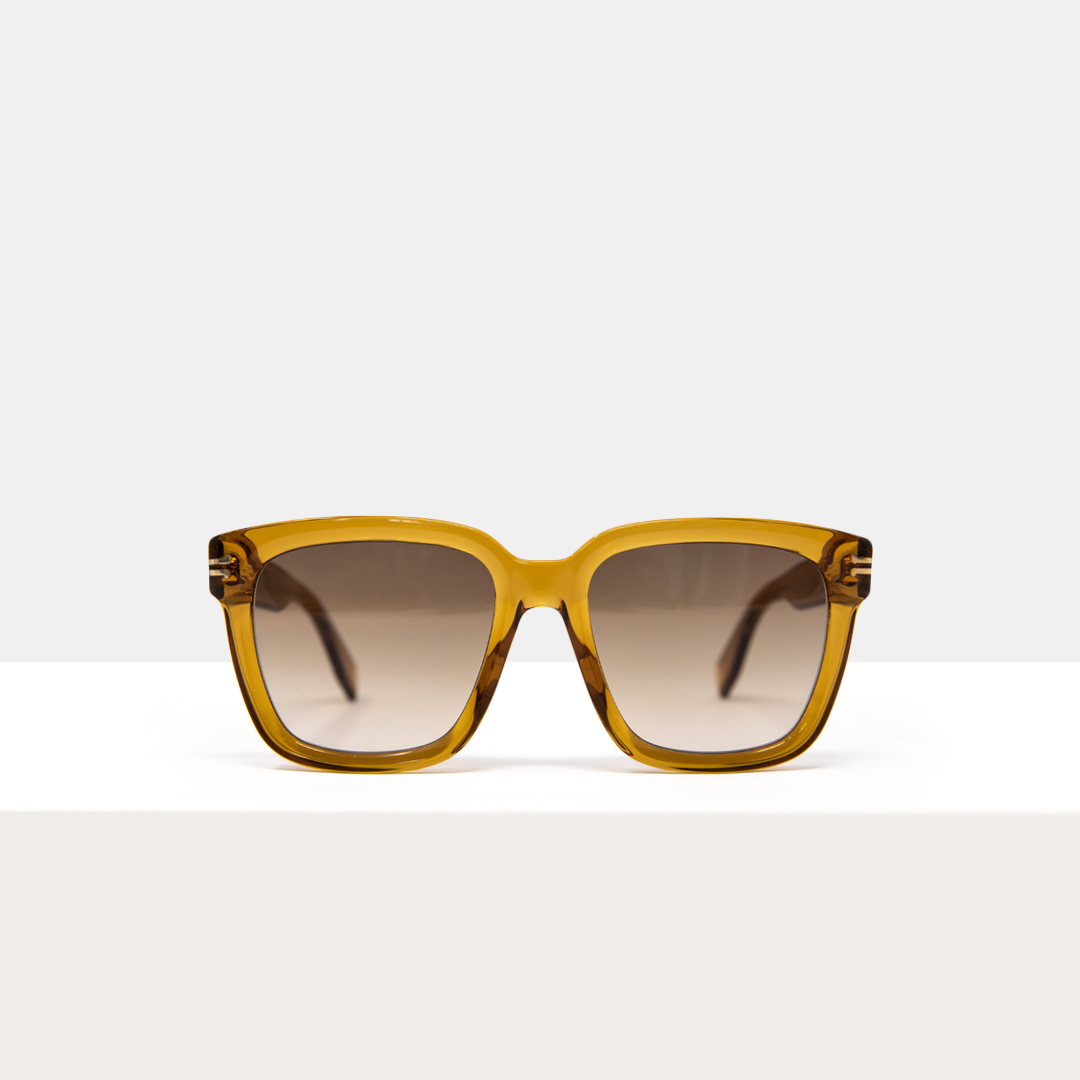
 Protection for the little ones
Protection for the little ones
Children's eyes are much more susceptible to UV rays than adults. Before a child turns one, 90% of UVA and more than 50% of UVB pass through the retina. Fortunately, many excellent, affordable models are available to today's little ones. To offer protection against a wide range of environments, choose a frame that wraps their face and eyes comfortably.
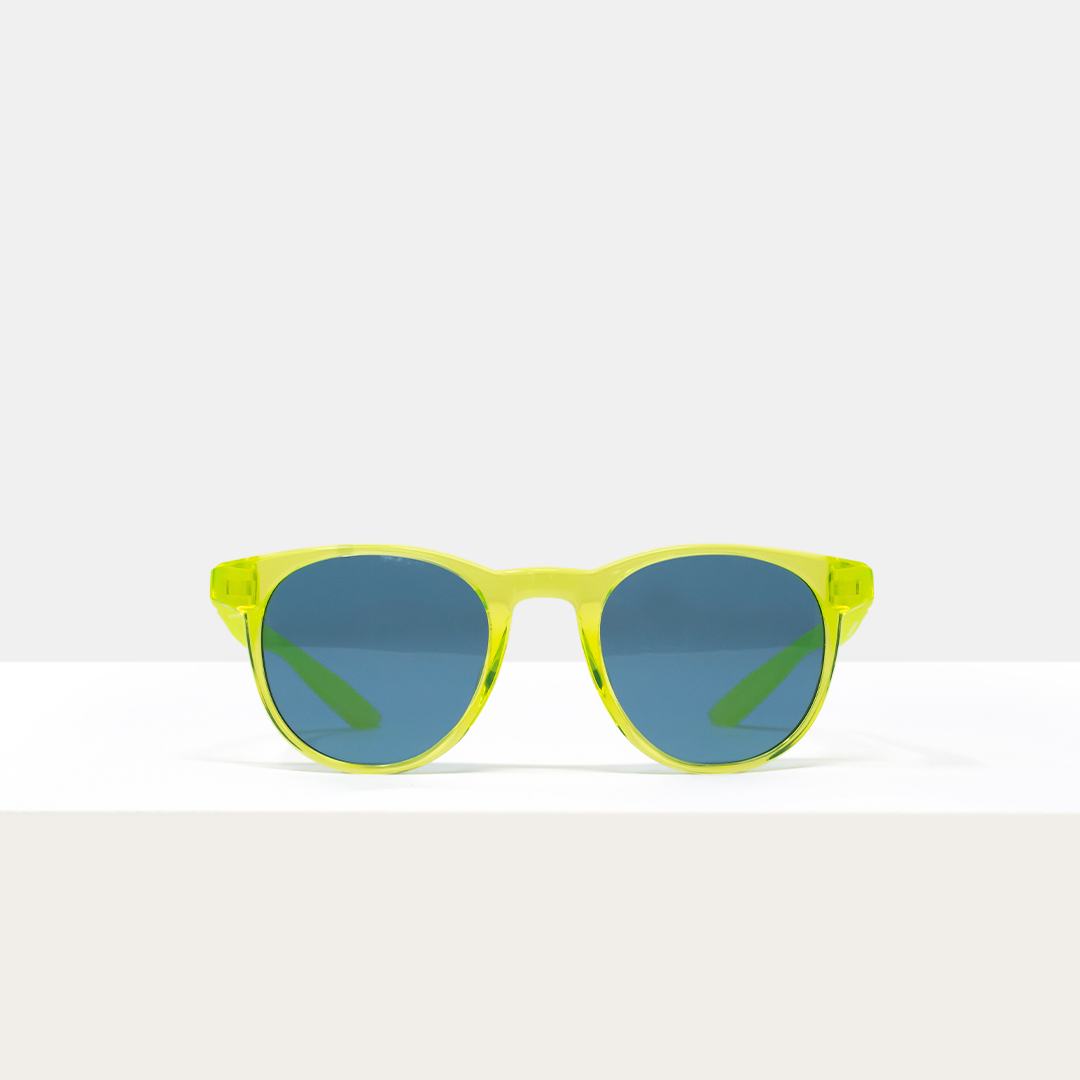
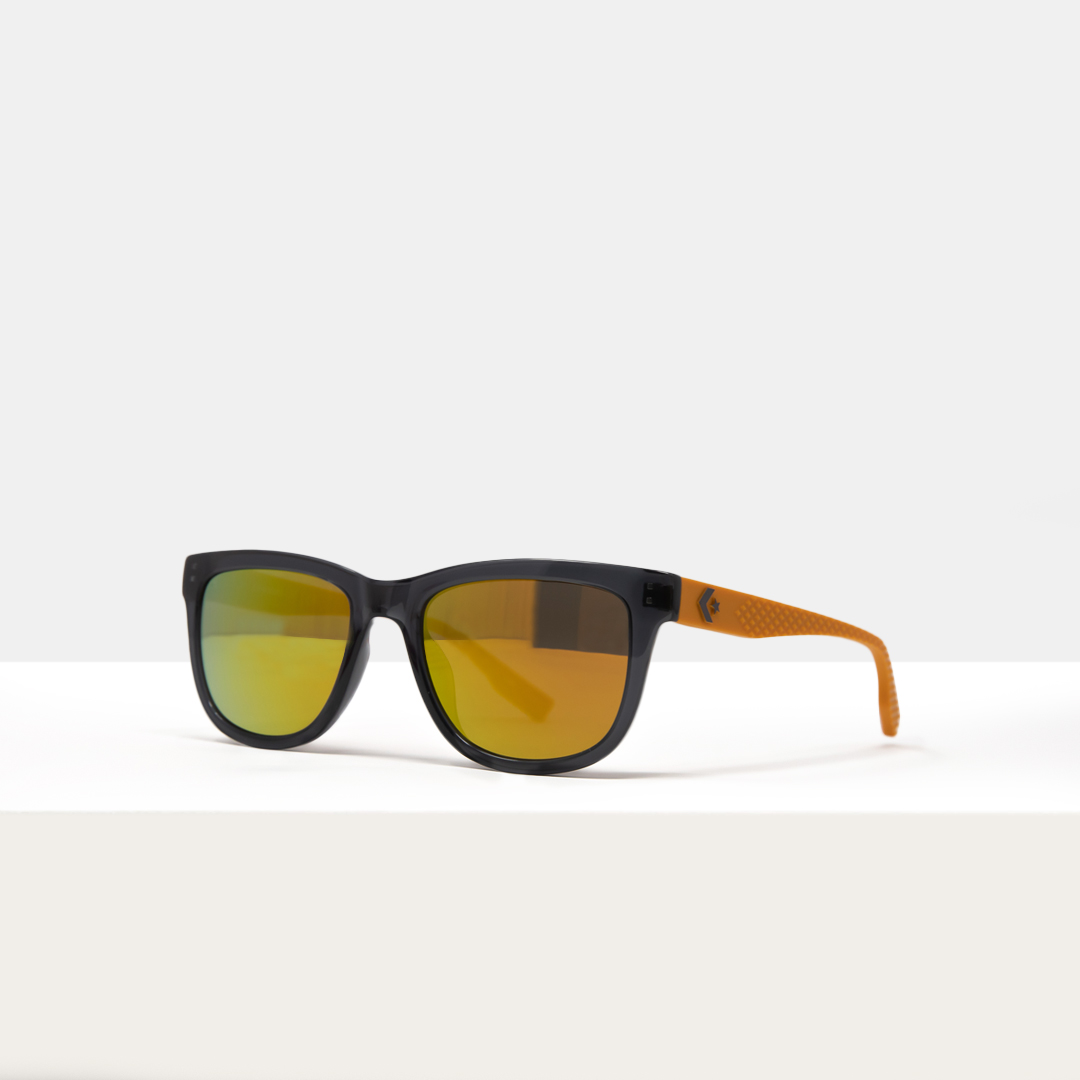
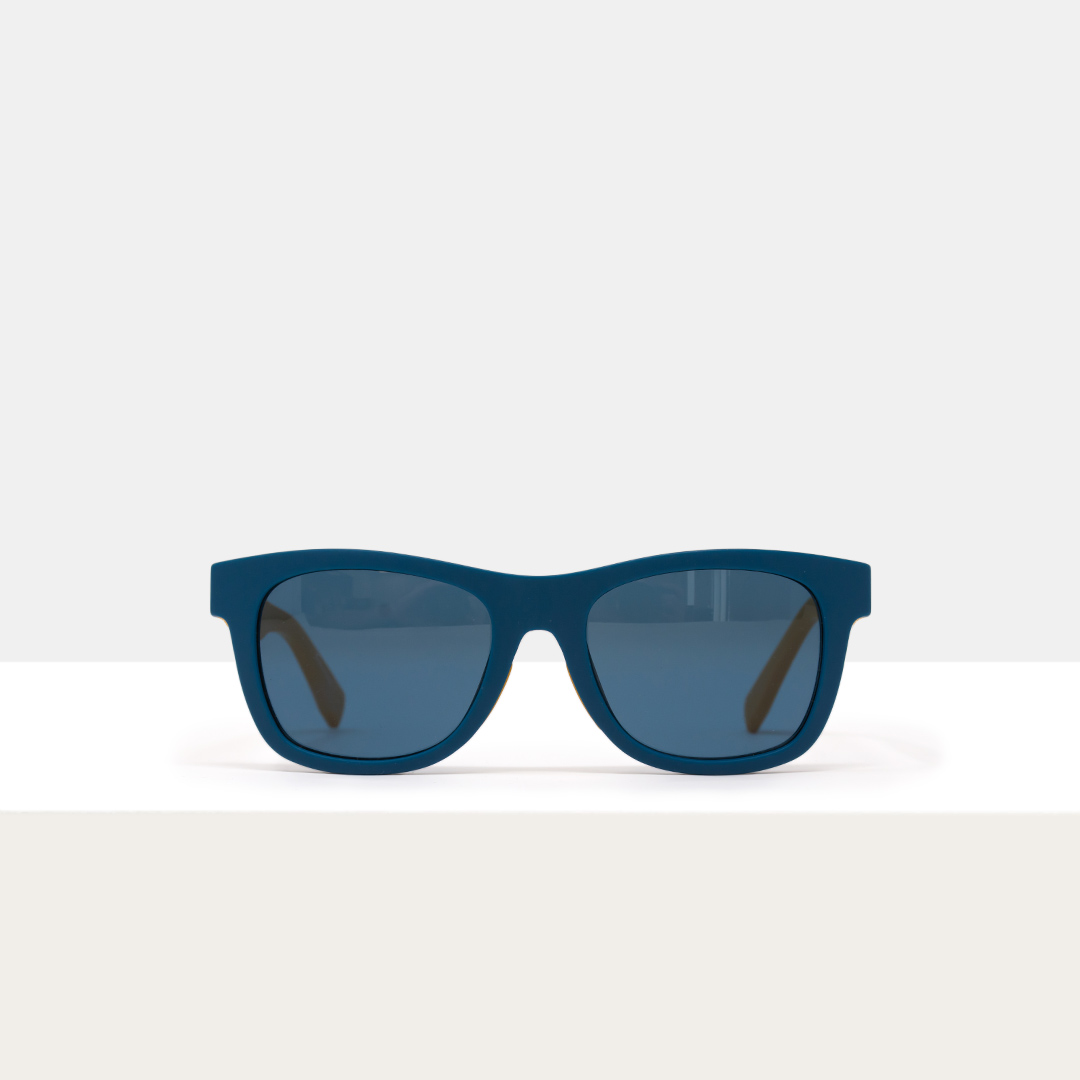
 Custom solar lenses
Custom solar lenses
Great for athletes, contact lenses often have UV filters that offer adequate protection. And when exposure is extra intense, these contacts can be paired with sunglasses to safeguard the skin around the eyes and the eyelids.
And as for truly custom-made sunglasses, today's state-of-the-art photochromic lenses can be integrated into your prescription glasses, providing optimal protection without your need for multiple frames.
Still have questions? An OPTOPLUS eye care professional can direct you toward solar solutions that accommodate your lifestyle. Book an appointment at an OPTOPLUS clinic near you and ensure your eyes get the protection they need!
Share this article


